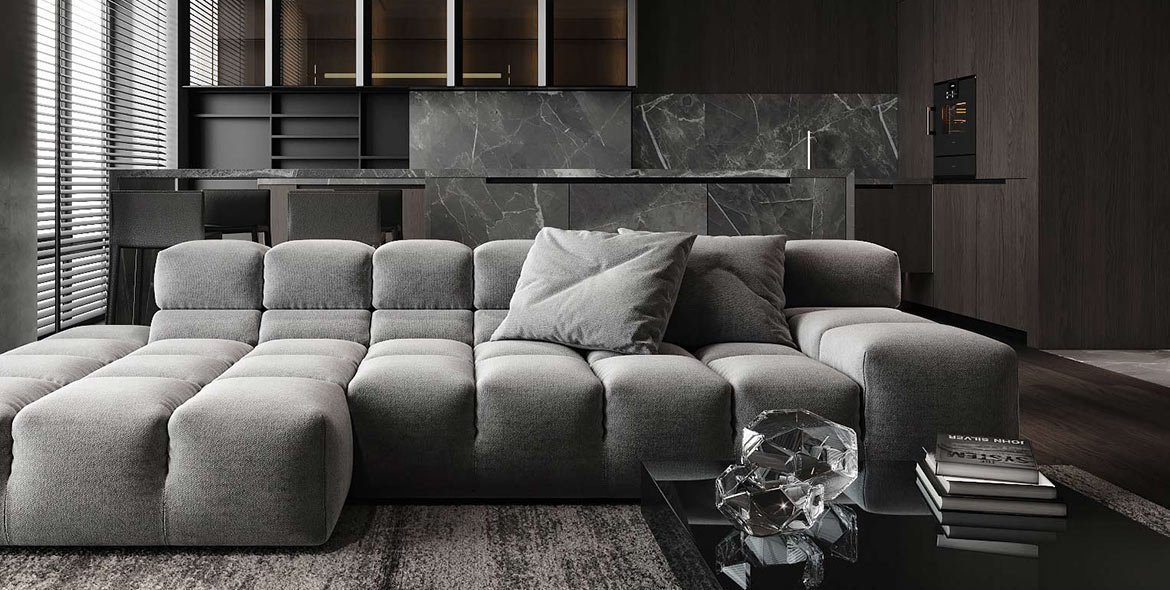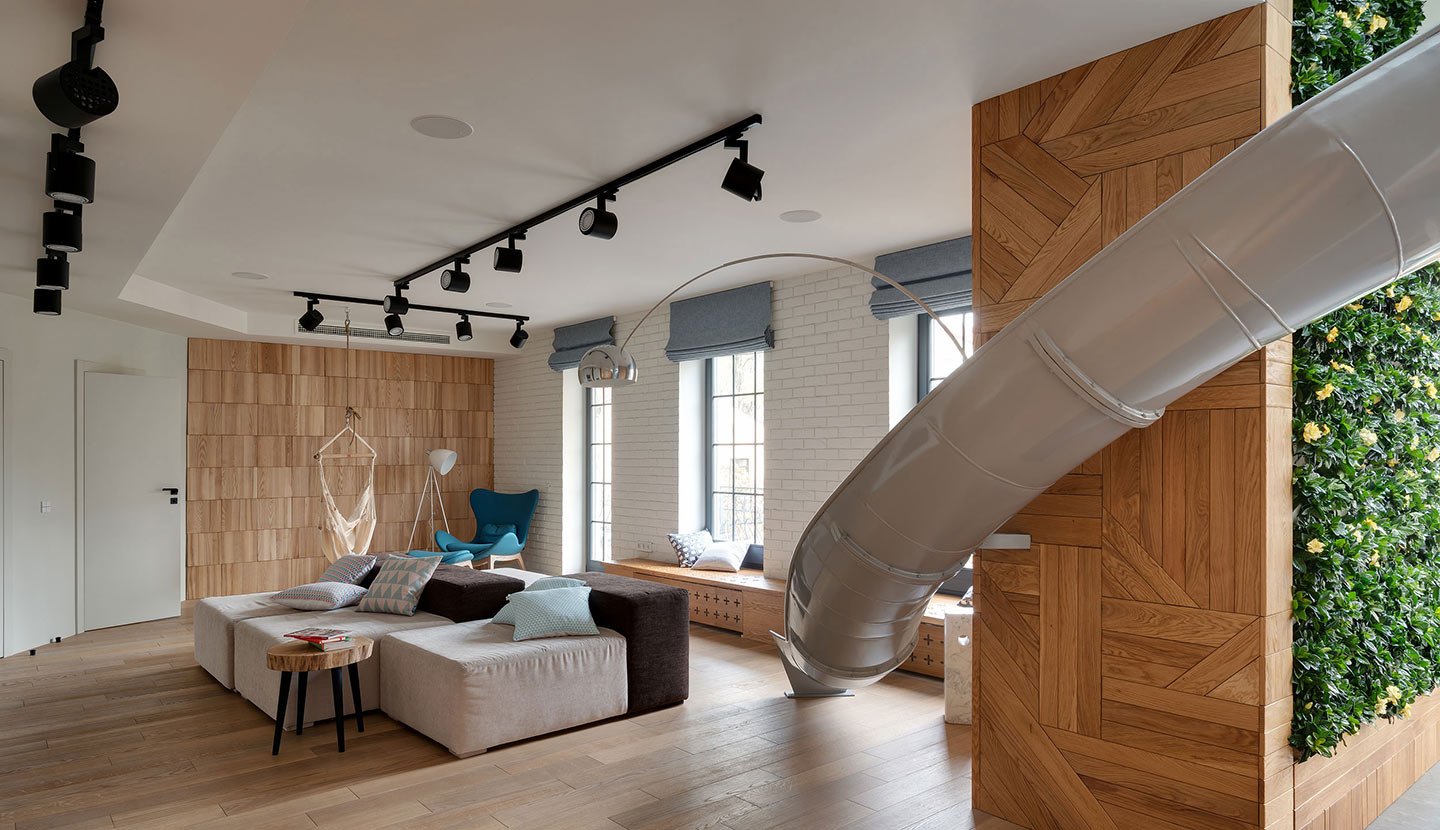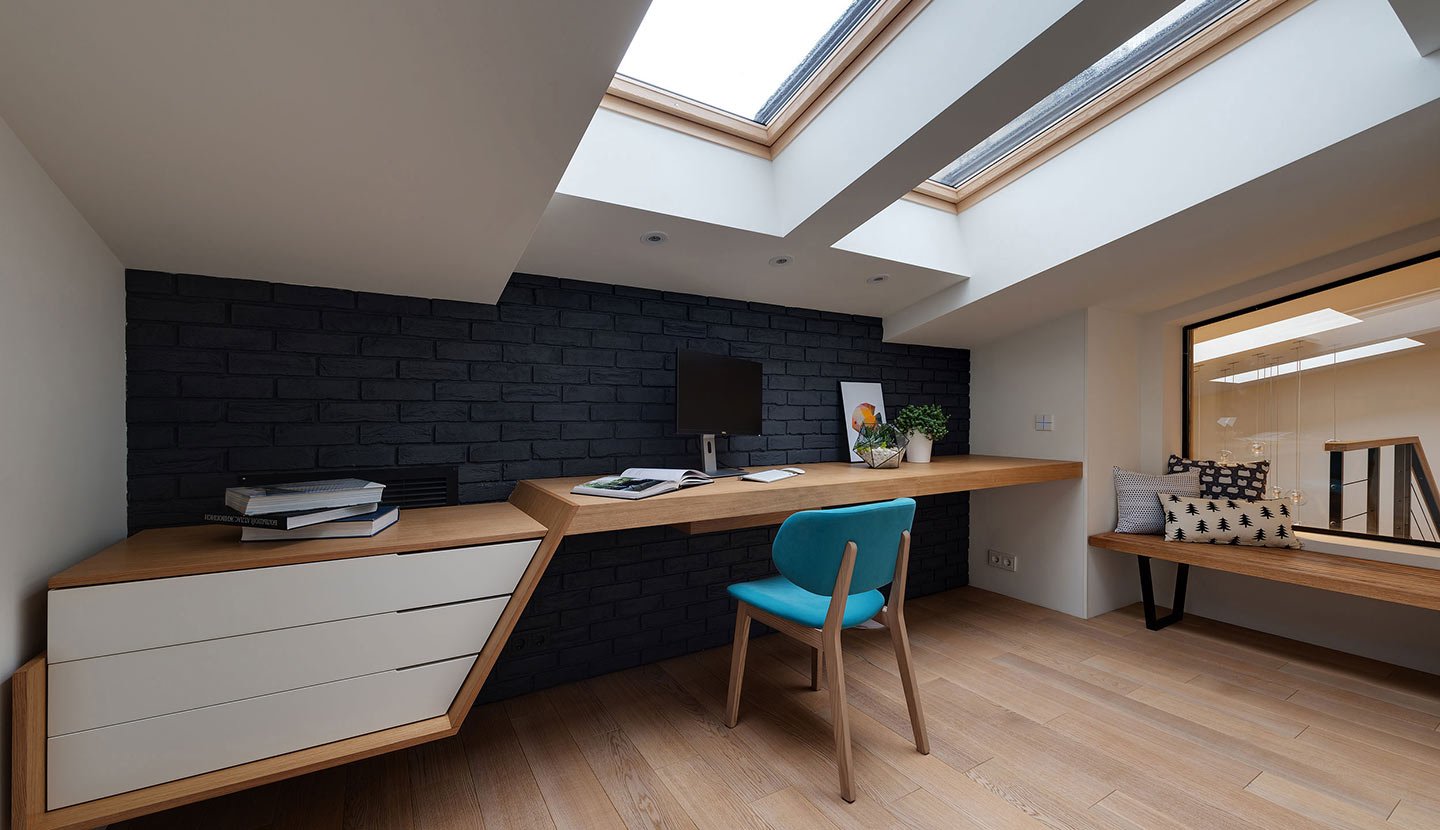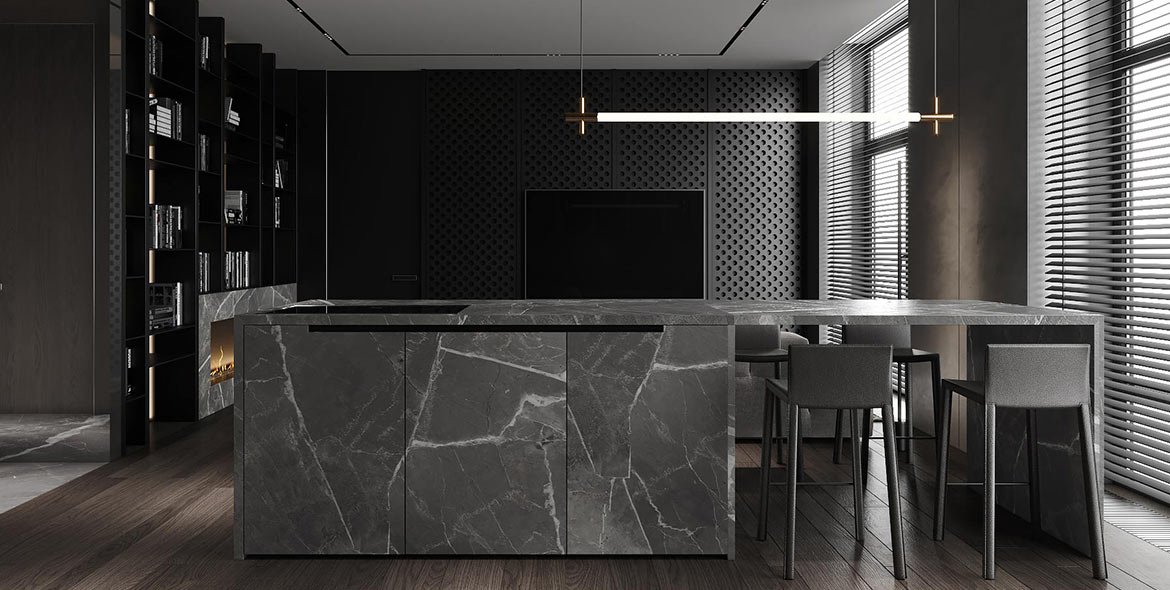Granite countertops are a popular choice for kitchens and bathrooms, renowned for their durability, beauty, and value. When it comes to selecting granite countertops, one crucial decision to make is the thickness of the slab.
Homeowners often debate between 16mm and 18mm granite, weighing the pros and cons of each option. In this article, we’ll delve into the comparison between these two thicknesses to help you make an informed decision for your home renovation or construction project.
Understanding Granite Thickness
Granite thickness plays a crucial role in determining the durability, appearance, and cost of countertops. When choosing between 16mm and 18mm granite, it’s essential to understand the differences to make an informed decision for your home.
What is Granite Thickness?
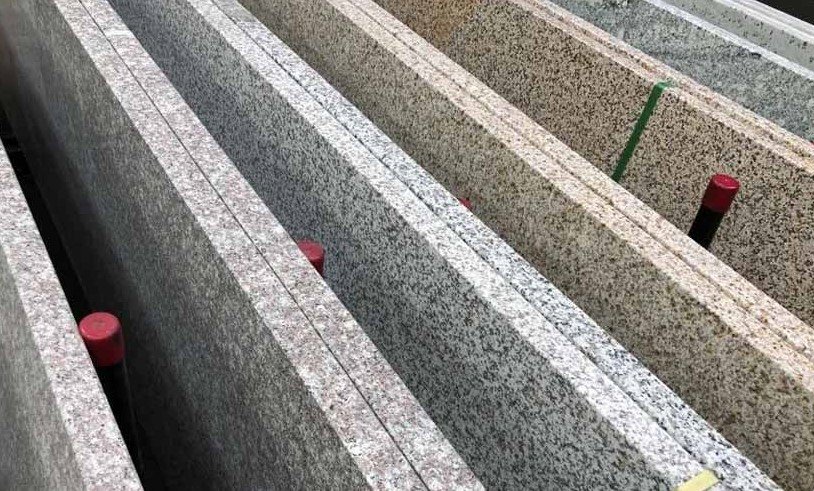
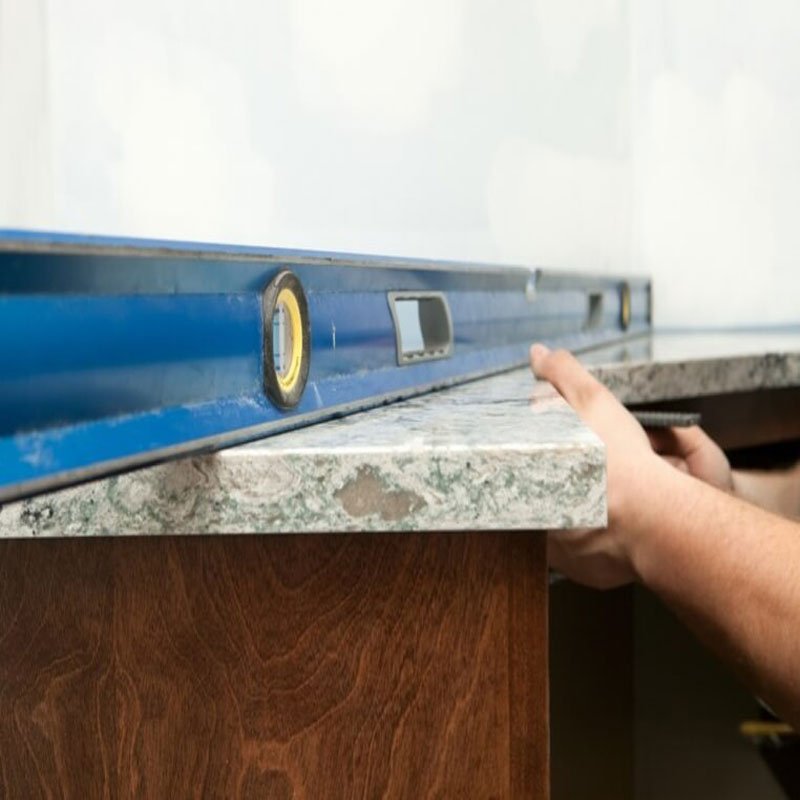
Granite thickness refers to the measurement of the slab from top to bottom. A standard thickness for granite countertops is either 16mm or 18mm. While both options offer quality and durability, there are distinct characteristics associated with each thickness.
16mm Granite
16mm granite, also known as 5/8 inch thick, is a thinner option compared to 18mm. It offers several advantages:
- Cost-effectiveness: Thinner slabs are typically less expensive due to the lower amount of material used.
- Lighter weight: Easier to handle and install, making it suitable for various applications.
- Modern aesthetic: Provides a sleek and contemporary look that appeals to many homeowners.
However, there are some drawbacks to consider:
- Less durability: Thinner granite may be more prone to chipping or cracking, especially in high-traffic areas.
- Limited edge profile options: Some intricate edge profiles may not be suitable for thinner slabs.
18mm Granite
18mm granite, approximately 3/4 inch thick, offers a thicker and more substantial option. Its advantages include:
- Enhanced durability: Thicker slabs are generally more robust and less susceptible to damage.
- Greater design versatility: Can accommodate a wider range of edge profiles for customized designs.
- Timeless appeal: Provides a substantial look and feel that appeals to many homeowners.
However, there are trade-offs:
- Higher cost: Thicker slabs require more material, resulting in a higher price tag.
- Heavier weight: Installation may be more labor-intensive due to the weight of the slab.
Choosing the Right Thickness
When deciding between 16mm and 18mm granite, consider factors such as:
- Durability: Thicker granite offers better resistance to damage and may have a longer lifespan.
- Cost: Thinner slabs are more cost-effective upfront, but thicker slabs may provide better long-term value.
- Aesthetics: Consider the visual impact of the thickness on your overall design aesthetic.
- Application: Thicker slabs are typically preferred for high-traffic areas like kitchen countertops, while thinner slabs may be suitable for other applications such as bathroom vanities or bar tops.
Both 16mm and 18mm granite offer quality and durability for countertops, with distinct advantages and considerations. By understanding the differences between these two thickness options, you can make an informed decision that meets your needs and preferences.
Benefits of 16mm or 18mm Granites
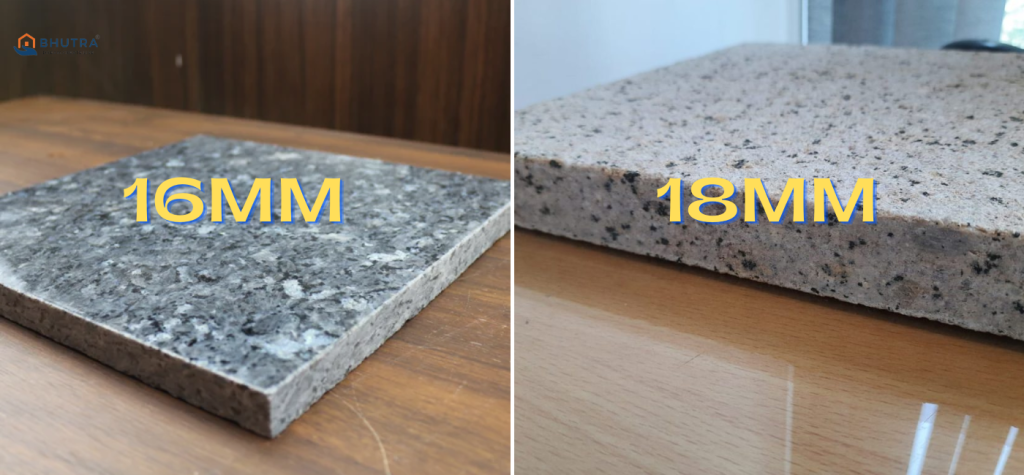
Granite countertops are a popular choice for homeowners due to their durability, beauty, and value. When deciding between 16mm and 18mm granite for your countertops, it’s essential to consider the unique benefits offered by each thickness.
Benefits of 16mm Granite
- Cost-Effectiveness: One of the primary advantages of 16mm granite is its affordability. Thinner slabs require less material, resulting in lower upfront costs compared to thicker options.
- Lighter Weight: 16mm granite is lighter and easier to handle during transportation and installation. This can save time and labor costs, especially for large countertop projects.
- Modern Aesthetic: Thinner slabs offer a sleek and contemporary look that complements modern kitchen and bathroom designs. The clean lines and minimalist appearance of 16mm granite appeal to many homeowners seeking a stylish aesthetic.
- Versatile Application: While commonly used for countertops, 16mm granite can also be used for other applications such as bathroom vanities, backsplashes, and bar tops. Its versatility makes it suitable for various home improvement projects.
Benefits of 18mm Granite
- Enhanced Durability: Thicker granite slabs offer superior durability and resistance to damage compared to thinner options. The added thickness provides extra strength and stability, making 18mm granite less prone to chipping, cracking, or breaking.
- Greater Design Versatility: With a thicker profile, 18mm granite can accommodate a wider range of edge profiles and design features. Homeowners have more options for customizing their countertops to suit their aesthetic preferences and functional needs.
- Timeless Appeal: The substantial look and feel of 18mm granite countertops lend a sense of luxury and elegance to any kitchen or bathroom. Thicker slabs have a timeless appeal that can enhance the overall aesthetic and value of a home.
- Long-Term Investment: While the initial cost of 18mm granite may be higher than 16mm, it’s often considered a worthwhile investment. The increased durability and longevity of thicker slabs can result in lower maintenance and replacement costs over time, making it a cost-effective choice in the long run.
16mm vs 18mm Granite Thickness Comparison
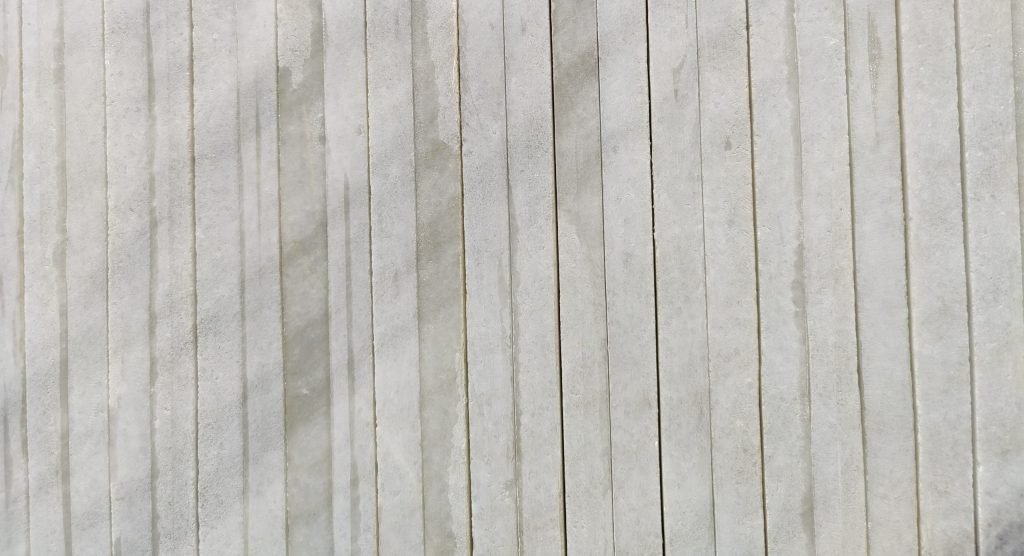

When comparing 16mm and 18mm granite thicknesses, there are several factors to consider, including durability, weight, cost, and aesthetic preferences.
- Durability: Generally, thicker granite countertops tend to be more durable and resistant to cracking or chipping compared to thinner ones. A thicker slab can withstand more weight and pressure, making it less prone to damage over time.
- Weight: Thicker granite slabs will be heavier than thinner ones. This can impact installation requirements and may necessitate additional structural support for the countertops, especially in areas with unsupported overhangs.
- Cost: Thicker granite slabs typically cost more than thinner ones due to the additional material and labor required for their production. However, the exact pricing difference will depend on factors such as the type of granite, supplier, and market conditions.
- Aesthetic Preferences: The thickness of the granite can also affect its appearance and perceived quality. Some homeowners prefer the substantial look and feel of thicker countertops, while others may prefer the sleeker profile of thinner ones. It ultimately comes down to personal preference and the overall design aesthetic of the space.
In short, while 16mm granite may offer cost savings and a sleeker appearance, 18mm granite tends to provide better durability and a more substantial feel. Homeowners should consider their priorities regarding durability, appearance, and budget when choosing between the two thickness options for their granite countertops.
Best Uses of 16mm vs 18mm Granite in Interior and Exterior
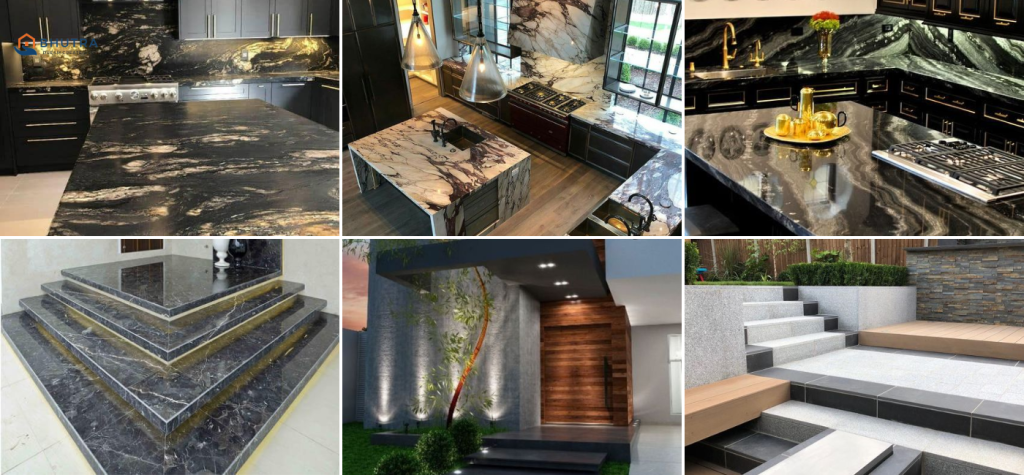
The best uses of 16mm vs. 18mm granite can vary depending on the specific requirements of the project, whether it’s for interior or exterior applications. Here are some considerations for each thickness:
16mm Granite
- Interior Countertops: 16mm granite can be suitable for interior countertop applications, particularly in areas where weight is a concern or where a sleeker profile is desired. It can provide a modern and streamlined look to kitchen or bathroom countertops.
- Wall Cladding: Thinner granite slabs can be used for interior wall cladding to add a touch of elegance and durability to spaces like feature walls, fireplace surrounds, or accent walls.
- Furniture: 16mm granite can be employed in furniture design, such as tabletops or shelves, where a durable and visually appealing surface is desired without adding excessive weight.
18mm Granite
- Kitchen Islands: For kitchen islands or other heavily used surfaces, 18mm granite offers increased durability and resistance to wear and tear. The thicker slab can better withstand the demands of everyday use in high-traffic areas.
- Exterior Cladding: In exterior applications, such as building facades or outdoor kitchen countertops, 18mm granite provides enhanced strength and resilience against weathering and environmental factors.
- Flooring: Thicker granite slabs are often preferred for flooring installations due to their ability to withstand heavy foot traffic and impact resistance. They can be used in both residential and commercial settings to create durable and attractive flooring surfaces.
- Staircases: For staircase treads and risers, 18mm granite offers stability and durability, providing a long-lasting and visually appealing solution for both indoor and outdoor staircases.
Ultimately, the choice between 16mm and 18mm granite will depend on factors such as the specific application, budget considerations, aesthetic preferences, and the level of durability required for the project. Consulting with a professional stone supplier or designer can help determine the most suitable thickness for your particular needs.
Why Choose Bhutra Marble & Granites?
Choosing Bhutra Marble & Granites can offer several benefits for those looking for quality stone products:
- Wide Selection: Bhutra Marble & Granites likely offers a wide selection of marble and granite products, including different colors, patterns, and finishes. This variety allows customers to find the perfect stone to suit their specific project requirements and design preferences.
- Quality Assurance: Reputable suppliers like Bhutra Marble & Granites typically prioritize quality assurance, ensuring that their stone products meet high standards of durability, aesthetics, and performance. This commitment to quality can provide peace of mind to customers, knowing they are investing in long-lasting and reliable materials.
- Expertise and Experience: With 45+ experience in the industry, Bhutra Marble & Granites likely has a team of experts who can provide valuable guidance and assistance to customers. Whether it’s selecting the right stone for a project, providing installation advice, or offering maintenance tips, their expertise can be invaluable throughout the entire process.
- Competitive Pricing: While offering high-quality products and services, Bhutra Marble & Granites may also strive to maintain competitive pricing. This combination of quality and affordability can make them an attractive option for customers looking to get the best value for their money.
- Customer Service: Good customer service is often a hallmark of reputable suppliers like Bhutra Marble & Granites. They may prioritize customer satisfaction by offering personalized assistance, prompt responses to inquiries, and efficient handling of orders and deliveries.
- Reliability and Trustworthiness: Establishing a reputation for reliability and trustworthiness is crucial in the stone industry. Bhutra Marble & Granites may have built a solid reputation for delivering on their promises, fulfilling orders on time, and standing behind the quality of their products.
Overall, choosing Bhutra Marble & Granites can provide customers with access to high-quality stone products, expert guidance, competitive pricing, and excellent customer service, making them a preferred supplier for various projects and applications.
Conclusion
Both 16mm and 18mm granite countertops offer unique advantages and considerations for homeowners. Thinner slabs are more cost-effective and offer a modern aesthetic, while thicker slabs provide enhanced durability and design versatility.
When choosing between the two thicknesses, homeowners should carefully consider factors such as durability, cost, aesthetics, maintenance requirements, and suitability for the intended application.
Consulting with design professionals and experienced contractors can help ensure the best outcome for your home renovation or construction project.


